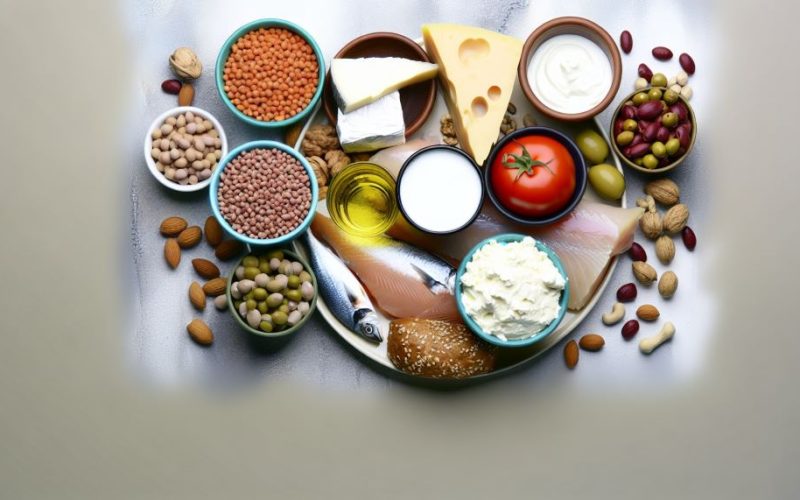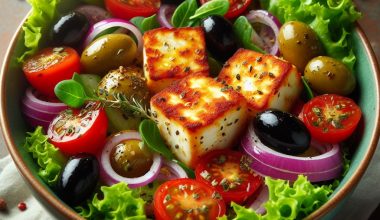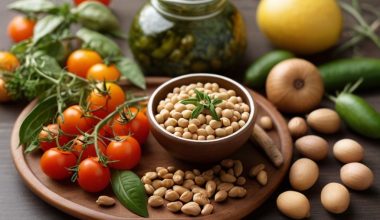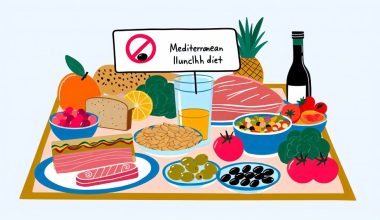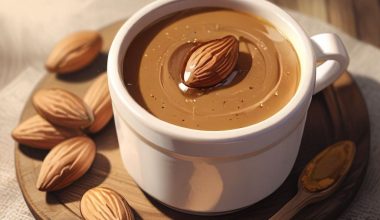The Mediterranean diet is rich in protein from sources such as fish, beans, nuts, and legumes. These foods provide essential amino acids for muscle health and overall well-being.
The Mediterranean diet, renowned for its heart-healthy benefits, is also a great source of protein. With an emphasis on foods like fish, beans, nuts, and legumes, this diet provides ample amounts of protein to support muscle growth and repair. Additionally, the consumption of lean proteins in the form of fish and plant-based sources in the Mediterranean diet contributes to overall health and satiety.
The balanced intake of these protein-rich foods, along with the diet’s emphasis on whole grains, fruits, and vegetables, makes it a well-rounded and nutritious choice for individuals looking to maintain an active and healthy lifestyle.
Introduction To The Mediterranean Diet
The Mediterranean Diet is known for its rich source of protein. With a focus on fish, legumes, nuts, and lean meats, this diet provides a variety of protein options to support a balanced and healthy eating plan.
The Mediterranean Diet is not just a fad diet, but a way of life that originated from the Mediterranean region. It emphasizes the consumption of whole foods, such as fruits, vegetables, whole grains, legumes, and healthy fats, while limiting processed foods, red meat, and added sugars. One of the key factors that make the Mediterranean Diet so popular is its focus on protein-rich sources like fish, poultry, and legumes. In this blog post, we will delve deeper into the protein sources in the Mediterranean Diet, explore the key components of this diet, and highlight the numerous benefits it offers.
Key Components Of The Mediterranean Diet
The Mediterranean Diet is rich in a variety of nutrient-dense foods, providing a well-balanced and sustainable approach to eating. Here are the key components that define the Mediterranean Diet:
1. Fresh fruits and vegetables: These colorful and flavorful plant-based foods are the backbone of the Mediterranean Diet. Loaded with vitamins, minerals, and antioxidants, fruits and vegetables are perfect choices to include in your daily meals.
2. Whole grains: Whole grains like whole wheat, oats, and brown rice are an essential part of the Mediterranean Diet. They provide fiber, vitamins, and minerals, and can help keep you feeling full and satisfied.
3. Healthy fats: The Mediterranean Diet encourages the consumption of healthy fats like olive oil, nuts, and seeds. These fats are a great source of omega-3 fatty acids, which have been linked to numerous health benefits.
4. Lean proteins: Protein is an important macronutrient that plays a crucial role in muscle repair and growth. The Mediterranean Diet incorporates lean protein sources such as fish, poultry, seafood, and legumes.
Benefits Of The Mediterranean Diet
Adopting the Mediterranean Diet can have numerous health benefits. Some of the key advantages include:
1. Heart health: The Mediterranean Diet has been shown to reduce the risk of heart disease, thanks to its emphasis on healthy fats, whole grains, and lean proteins. It can help improve cholesterol levels and lower blood pressure.
2. Weight management: The Mediterranean Diet is not a restrictive diet but a sustainable and balanced approach to eating. By focusing on whole foods and portion control, it can help you maintain a healthy weight or even lose weight if needed.
3. Reduced risk of chronic diseases: Research suggests that the Mediterranean Diet can help reduce the risk of developing chronic diseases such as type 2 diabetes, certain types of cancer, and neurodegenerative conditions like Alzheimer’s disease.
4. Improved brain health: The Mediterranean Diet, with its emphasis on high-quality nutrients, has been associated with better cognitive function and a reduced risk of cognitive decline. In conclusion, the Mediterranean Diet is a wholesome and nutritious way of eating that offers numerous health benefits.
By incorporating lean proteins like fish and legumes, along with other key components such as fresh fruits, vegetables, whole grains, and healthy fats, you can nourish your body and support overall well-being.�
Importance Of Protein In The Diet
Protein is an essential macronutrient that plays a crucial role in the Mediterranean diet. It is vital for the growth, repair, and maintenance of tissues in the body. In this section, we will explore the importance of protein in the diet, the role of protein in the body, and the recommended daily intake of protein.
Role of Protein in the Body:
Protein serves as the building blocks for various tissues in the body, including muscles, skin, hair, and nails. It also plays a key role in the production of enzymes and hormones, contributing to the overall functioning of the body. Additionally, protein helps in the transportation of nutrients and supports a healthy immune system.
Recommended Daily Intake Of Protein:
The recommended daily intake of protein varies based on factors such as age, sex, and activity level. On average, adults should aim to consume about 0.8 grams of protein per kilogram of body weight. For individuals engaged in regular physical activity or strength training, a slightly higher intake may be beneficial to support muscle repair and growth.
Protein Sources In The Mediterranean Diet

The Mediterranean diet is not only renowned for its health benefits but also for its rich sources of protein. Incorporating a variety of protein sources, such as fish and seafood, legumes and beans, and nuts and seeds, it offers a well-rounded approach to meeting your protein needs.
Fish And Seafood
Fish and seafood are staples of the Mediterranean diet, providing an abundant source of lean protein. Rich in omega-3 fatty acids, they offer numerous health benefits, including heart health and cognitive function support. Common varieties include salmon, sardines, and mackerel, all of which are not only delicious but also nutritionally beneficial.
Legumes And Beans
Legumes and beans are another essential component of the Mediterranean diet, offering a plant-based protein source. Varieties such as lentils, chickpeas, and black beans are not only versatile but also rich in fiber, aiding in digestion and providing long-lasting energy.
Nuts And Seeds
Nuts and seeds are commonly enjoyed as healthy snacks or incorporated into meals in the Mediterranean diet. Almonds, walnuts, chia seeds, and flaxseeds are excellent sources of protein, healthy fats, and other essential nutrients. They contribute to satiety and can aid in weight management, making them an ideal addition to this diet.
Protein-rich Mediterranean Diet Recipes
Are you looking to incorporate more protein-rich meals into your Mediterranean diet? Look no further! We have gathered some delicious and nutritious recipes that are not only packed with protein but also capture the vibrant flavors of the Mediterranean cuisine.
Grilled Salmon With Lemon And Herbs
Indulge in this scrumptious grilled salmon dish that combines the heart-healthy benefits of omega-3 fatty acids with the zesty flavors of lemon and aromatic herbs.
- Preparation time: 15 minutes
- Cooking time: 10 minutes
- Servings: 4
Ingredients:
- 4 salmon fillets (6 ounces each)
- 2 lemons, sliced
- 2 tablespoons of olive oil
- 1 tablespoon of fresh dill, chopped
- Salt and pepper to taste
Instructions:
- Preheat the grill to medium-high heat.
- Brush the salmon fillets with olive oil and season with salt and pepper.
- Place the lemon slices on the grill and cook for 2 minutes on each side until charred.
- Add the salmon fillets to the grill and cook for 4-5 minutes on each side, or until the fish is cooked through.
- Remove from the grill and sprinkle with fresh dill.
- Serve hot with a squeeze of lemon juice.
Mediterranean Chickpea Salad
This refreshing chickpea salad is a protein-packed addition to your Mediterranean diet. Packed with fresh vegetables and tossed in a tangy dressing, it is a perfect side dish or light lunch option.
- Preparation time: 10 minutes
- Servings: 6
Ingredients:
- 2 cans of chickpeas, drained and rinsed
- 1 cucumber, diced
- 1 bell pepper, diced
- 1 red onion, thinly sliced
- 1 cup of cherry tomatoes, halved
- 1/4 cup of pitted Kalamata olives, sliced
- 1/4 cup of feta cheese, crumbled
- 2 tablespoons of extra virgin olive oil
- 2 tablespoons of lemon juice
- 1 tablespoon of fresh parsley, chopped
- Salt and pepper to taste
Instructions:
- In a large bowl, combine the chickpeas, cucumber, bell pepper, red onion, cherry tomatoes, Kalamata olives, and feta cheese.
- In a separate small bowl, whisk together the olive oil, lemon juice, parsley, salt, and pepper to make the dressing.
- Pour the dressing over the salad and toss gently to coat all the ingredients.
- Allow the salad to marinate for at least 30 minutes in the refrigerator before serving.
- Garnish with additional parsley if desired and serve chilled.
Roasted Almonds With Spices
These savory roasted almonds are a delightful protein-rich snack that adds a burst of flavor to your Mediterranean diet. Simple yet satisfying, they are perfect for on-the-go and can be customized with your favorite spices.
- Preparation time: 5 minutes
- Cooking time: 15 minutes
- Servings: 8
Ingredients:
- 2 cups of raw almonds
- 2 tablespoons of extra virgin olive oil
- 1 tablespoon of smoked paprika
- 1 teaspoon of garlic powder
- 1 teaspoon of dried oregano
- 1/2 teaspoon of cayenne pepper
- Salt to taste
Instructions:
- Preheat the oven to 350°F (175°C) and line a baking sheet with parchment paper.
- In a bowl, toss the almonds with olive oil, smoked paprika, garlic powder, dried oregano, cayenne pepper, and salt until evenly coated.
- Spread the seasoned almonds in a single layer on the prepared baking sheet.
- Bake for 12-15 minutes, stirring once halfway, until the almonds are golden brown and fragrant.
- Remove from the oven and let them cool completely before storing in an airtight container.
Other Nutrients In The Mediterranean Diet
The Mediterranean diet is known for its abundance of protein-rich foods like fish, poultry, legumes, and nuts. In addition, it offers a variety of other nutrients, such as fiber, vitamins, and minerals, making it a well-rounded and healthy way of eating.
The Importance Of A Balanced Diet
The Mediterranean Diet is renowned for its wealth of health benefits, and one key aspect that contributes to its success is its emphasis on a balanced diet. A balanced diet is crucial as it provides the body with the necessary nutrients it needs to function optimally and maintain overall well-being. By incorporating a variety of food groups, including fruits, vegetables, whole grains, lean proteins, and healthy fats, the Mediterranean Diet ensures that individuals receive a wide range of essential nutrients to support good health.
Additional Nutrients In The Mediterranean Diet
While protein is often considered a vital macronutrient in any diet, it is not the sole focus of the Mediterranean Diet. This eating pattern also prioritizes other key nutrients that play an essential role in promoting health and vitality. Let’s explore some of these additional nutrients:
Vitamins And Minerals
The Mediterranean Diet is abundant in vitamins and minerals that are necessary for various bodily functions. It includes a variety of fruits and vegetables that are packed with essential vitamins like vitamin C, vitamin A, and vitamin K. These vitamins help support immune function, promote healthy vision, and assist in blood clotting. Additionally, the diet features minerals like potassium, magnesium, and calcium, which are important for maintaining healthy bones, muscle function, and cardiovascular health.
Omega-3 Fatty Acids
The Mediterranean Diet places great emphasis on consuming foods rich in omega-3 fatty acids. These healthy fats can be found in fatty fish such as salmon, sardines, and mackerel, as well as in walnuts and flaxseeds. Omega-3 fatty acids have been associated with numerous health benefits, including reducing inflammation, improving heart health, and supporting brain function.
Fiber
High-fiber foods are a cornerstone of the Mediterranean Diet. The consumption of whole grains, legumes, fruits, and vegetables ensures an ample intake of dietary fiber. Fiber not only aids in digestion but also helps maintain healthy cholesterol levels, regulates blood sugar levels, and promotes a feeling of fullness and satiety after meals. Including fiber-rich foods in the diet is essential for overall gut health and helps prevent various health conditions such as constipation and cardiovascular disease.
Antioxidants
The Mediterranean Diet is known for its abundance of antioxidant-rich foods. Antioxidants, such as those found in fruits, vegetables, and nuts, help protect the body against oxidative stress and cellular damage caused by harmful free radicals. These compounds have been linked to a reduced risk of chronic diseases, including heart disease and certain types of cancer.
Overall, the Mediterranean Diet encompasses a wide range of nutrients beyond just protein. By incorporating a diverse array of foods, individuals can benefit from the many vitamins, minerals, healthy fats, fiber, and antioxidants that this eating pattern provides. Embracing these additional nutrients alongside protein can help support overall health and well-being, making the Mediterranean Diet a truly well-rounded approach to nutrition.
Frequently Asked Questions About What Protein Is in the Mediterranean Diet?
What are the Protein Sources in the Mediterranean Diet?
Protein sources in the Mediterranean Diet include fish, nuts, legumes, and lean meats like chicken and turkey. These protein-rich foods provide essential amino acids for muscle repair and growth, making them an important part of a healthy Mediterranean eating plan.
Can You Get Enough Protein on the Mediterranean Diet?
Yes, you can get enough protein on the Mediterranean Diet. While it is not a high-protein diet like some others, the Mediterranean Diet includes a variety of protein-rich foods such as fish, poultry, legumes, and nuts. These sources provide adequate protein for most individuals.
Is fish a Good Source Of Protein in the Mediterranean Diet?
Yes, fish is an excellent source of protein in the Mediterranean Diet. It is low in saturated fat and high in omega-3 fatty acids, which have been shown to have numerous health benefits. Including fish in your Mediterranean meals can help meet your protein needs while promoting heart health.
Conclusion
The Mediterranean diet offers a rich source of protein from various foods like fish, legumes, and nuts. By incorporating these protein-rich options into your meals, you can enhance your overall health and well-being. So, whether you’re following this diet for weight loss or simply for a healthier lifestyle, the Mediterranean diet can provide you with the necessary protein to support your body’s needs.
Try out some easy and delicious Mediterranean recipes today and reap the benefits of this protein-packed diet.

